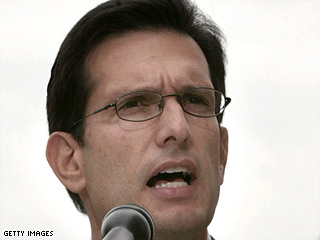Mr. Shaman
Well-Known Member
- Joined
- Nov 27, 2007
- Messages
- 7,829
It's lookin' like the ($ucce$$ful) high-rollers AGREE with Al Greenspan!!!
“Are you kidding me?” That’s the yelp we’re hearing around the country as some of the wise elders of finance reveal their real identities: hard-core $upporter$ of more government regulation of bu$ine$$.
The New York Times reports that George Soros, Nicholas F. Brady, John S. Reed, William H. Donaldson, and John C. Bogle are some of the more notable Wall Street leaders who favor increased oversight of the very industries that made them wealthy and powerful.
Is this a brazen act of hypocrisy driven by guilt pangs that these older gentlemen are feeling as they look back on their sometimes controversial careers? I’ll leave the psychoanalysis to those with expertise in this area. But whatever the psychological motivation may be, the fact is that increased regulation for business in general and finance in particular isn’t just ethically appropriate. It’s ethically required.
Former CEO and BusinessWeek.com contributor Jack Welch was right to implore, “Control your destiny or someone else will.” Since businesses have done a poor job of regulating themselves, someone else must, and that someone is the federal government. Business leaders have no one to blame but themselves for this.
The failures that led to the need for increased regulation were ethical failures. Businesses’ fetishistic obsession with short-term gain, coupled with a pathological unwillingness to consider any long-term implications, gave rise to the economic crisis in which we’re still mired, and there is only way to describe such a management strategy: absolutely, positively, and indisputably wrong."
Gee.....try to imagine such dialogue during THE BUSH YEARS!!!!! 
GOOOOBAMA!!!!!!!!!!!!!!!!!!

GOOOOBAMA!!!!!!!!!!!!!!!!!!

